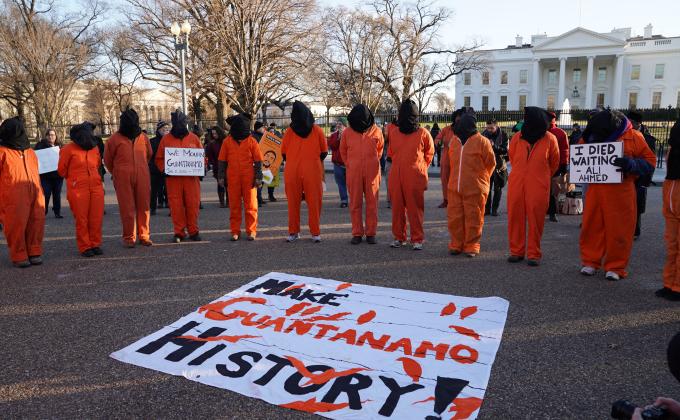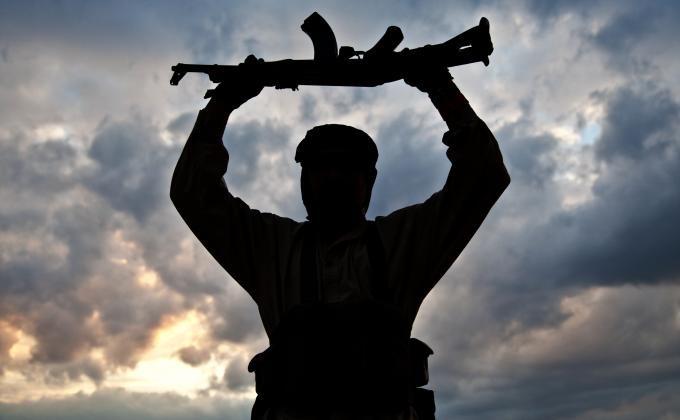After the withdrawal of the United States from Northern Syria, the fate of the foreign fighters and their families held in Syrian Democratic Forces (SDF) controlled camps is becoming increasingly untenable. For now, the majority of European fighters are being held in the al-Hol and Ain Issa camps. According to the Egmont Institute, the majority of these foreigners consist of young children. Already—in the short time that the SDF were battling with the Turkish forces—reports have emerged that several ISIS fighters, including women and children, have escaped. It is unclear whether the recent deal struck by Turkey and Russia will hold and even it does, it does not offer a solution to the many ISIS fighters detained with their families in these camps. Although the United States announced its withdrawal nearly a year ago, European countries have still not come up with a solution on how to deal with their foreign fighters and families.
When it comes to repatriation, so far, European countries seem to be only willing to repatriate orphans. France, the Netherlands, and Austria have each taken back a handful orphans and the United Kingdom is currently making plans to bring back British orphans. Last week, the Dutch child protection agency requested that the Dutch government repatriate two orphans who were earlier placed in the custody of social services by a family court.
In France, several families have filed a suit against the Minister of Foreign Affairs for failing to protect its citizens in danger. The case has been brought before a special court that normally hears cases of misconduct by ministers. In Germany, a court in Berlin ruled that, due to the dire conditions in the camp, the German government had to repatriate a woman and three children. The Higher Administrative Court ruled on 6 November that repatriation of the traumatised children is only possible if the mother would also be repatriated. The German government was already taking steps to repatriate the children but refused to repatriate the mother. According to the Higher Administrative Court repatriation of the mother could only be refused if there is a concrete and tangible threat, which the German government was unable to prove. In the Netherlands, the court in Rotterdam has also ordered that the authorities should detain female foreign fighters with the aim that they should be extradited to the Netherlands and brought to justice. Similar requests to detain suspects in the camps have been made, however, the Dutch Government has repeatedly said the situation is too unsafe to repatriate. Furthermore, the Dutch Government indicates that it does not recognise the SDF and has no diplomatic ties with Syria. Thus, according to Dutch policy, the Dutch fighters will need to go to a Dutch diplomatic representation in the region themselves, after which a return under the supervision of the Royal Netherlands Marechaussee could take place.
On 31 October 2019, two Dutch women with three children, who managed to escape from al-Hol camp with their children, reached the Dutch embassy in Ankara and asked for consular protection. At time of writing, the Dutch Minister of Foreign Affairs has said that it still remains to be seen whether these women will be brought to The Netherlands to stand trial, as they will first be handed over to the Turkish authorities. In a letter by the relevant Ministers the Parliament is informed that one of the women has been stripped of nationality, making the situation more complex also in terms of bringing her to justice in the Netherlands. The other option could be that the Turkish authorities would prosecute them most likely for membership of a terrorist organization. In two—albeit exceptional cases—two Dutch men, Reda N. and Oussama A. were tried and released before serving their full sentence in Turkey, ultimately prompting the Dutch authorities to prosecute them upon their return to the Netherlands.
In recent months we see that various family members back home in Europe and/or women detained in the camps in Northern Syria are challenging their governments in court to repatriate them and their children. In this Perspective, I will provide four legal considerations that pertain to the current situation in the camps and two more general legal principles. It is based on an analysis of primarily Dutch cases, which could also have implications for other countries.
- Right to be free from torture and inhumane or degrading treatment
The situation in the detention camps is catastrophic and is putting at risk the lives of the children and mothers and exposing them to inhumane treatment. Furthermore, several hard-line ISIS fighters who are taking control in parts of the camps are imposing cruel punishments on other women and children in the camps. The right to be free from torture and inhumane treatment in accordance with Article 7 of the International Covenant for Civil and Political Rights (ICCPR) and Article 3 of the European Convention on Human Rights could be invoked. Recently in France, the grandparents have filed a lawsuit at the European Court of Human Rights (ECHR) against France for refusing to repatriate their daughter and two grandchildren. The family claims that France is allowing the children to be exposed to inhumane and degrading treatment in a camp where the women and children are exposed to diseases and are suffering from dwindling food and water supplies.
- Right to life and development
Human Rights Watch and other humanitarian organisations have reported that the situation in the camps is deteriorating and that already 340 children have died in al-Hol since December 2018. According to Article 6 of the Convention on the Rights of the Child (CRC), a child has an inherent right to life. The current situation is detrimental to the development of a child from a physical, emotional, and educational perspective. State parties to the Convention have to ensure to maximum extent possible the survival and development of the child. According to the Human Rights Committee’s General Comment No. 5, “the term development should be interpreted in its broadest sense, encompassing the child’s physical, mental, spiritual, moral, psychological and social development.” The women could also invoke the right to life as laid down in Article 6 of the ICCPR and Article 2 of the ECHR. In accordance with Article 6 of the Convention on the Rights of the Child (CRC), leaving them in the camps would certainly violate this obligation.
- Right to return to own country
According to Article 12(4) of the ICCPR, no one shall be arbitrarily deprived of the right to enter their own country. This would mean that those foreign fighters—regardless of the alleged crimes they have committed—are still European citizens and have the right to enter their own country. The scope of ‘one’s own country’ is broader than the concept of ‘country of his one’s nationality’ and, according to the Human Rights Committee’s General Comment No. 27, “it embraces, at the very least, an individual who, because of his or her special ties to or claims in relation to a given country, cannot be considered a mere alien” and specifically refers to: nationals of a country who have been stripped of their nationality in violation of international law, and other categories of long-term residents, including—but not limited to—stateless persons arbitrarily deprived of their right to acquire the nationality of the country of such residence. If an individual is deprived of nationality in violation of international law, the country of former nationality remains the persons “own country” for the purposes of the right to enter one’s own country. A similar provision can be found in Article 3(2) of Protocol No. 4 to the Convention for the Protection of Human Rights and Fundamental Freedoms. This could also mean that if the nationality of the Dutch women who recently reported herself at the Dutch embassy in Ankara has been revoked in violation of international law—The Netherlands would remain her own country and could then technically claim the right to return home.
- In the best interest of the child
According to Article 3 of the CRC,the best interest of the child shall be the primary consideration. This concerns all actions undertaken by a by public or private social welfare institutions, courts of law, administrative authorities, or legislative bodies. The conditions in the detention camps are worsening: lack of food, lack of decent sanitation, lack of adequate housing. There is no basic health care nor education available in the camps. For this reason, other provisions of the CRC could also be invoked, such as the right to basic health care (Article 24), the right to adequate standard of living (Article 27), and the right to education (Article 28).
The mothers could also invoke the right to family life in accordance with Article 8 of the European Convention on Human Rights (ECHR). Although Article 9 of the CRC refers to the principle of family unity, this is not an absolute right and allows children to be separated from their parents when such separation is necessary for the best interests of the child. Furthermore, such a separation can only be issued by competent authorities subject to judicial review in accordance with applicable law and procedures.
According to Committee on the Rights of the Child in General Comment No. 13(2011) stated:
“Preventing family separation and preserving family unity are important components of the child protection system and are based on the right provided for in Article 9, paragraph 1, […] Given the gravity of the impact on the child of separation from his or her parents, such separation should only occur as a last resort measure, as when the child is in danger of experiencing imminent harm or when otherwise necessary; separation should not take place if less intrusive measures could protect the child.”
The decision whether to separate the children should thus not be taken lightly. It is interesting to note that in the recent case in Berlin, the Kurdish authorities insisted that the children should not be repatriated without their mother was taken into account by the court in reaching its decision.
- The non-discrimination principle
The best interest of the child is closely connected to the non-discrimination principle. According to Article 2(2) of the CRC, children should not be punished, treated differently, or discriminated against because of the beliefs of their parents. The majority of children in these camps were born in the so-called caliphate and are currently under the age of six. The Dutch Counter-Terrorism Agency already reported in 2018 that it is likely that the parents would return if the children were actively repatriated. Although there is a security risk involved, it is a calculated security risk. The right to non-discrimination implies that States should proactively take measures.
- Right to consular assistance
In an earlier op-ed, I discussed—together with Christophe Paulussen—the ruling of a court in Belgium. In this instance, the court ordered that Belgium should do everything in its powers to bring back six children and their mothers from detention camps in Syria. The judge ruled that the interest of the child should be upheld by all Belgian authorities, this includes the Belgian diplomatic and consular services. According to the Code of Consular Affairs, Belgian citizens are entitled to consular assistance when they find themselves in extreme circumstances. This case was later dismissed due to a technicality. However, on 30 October 2019, the court in Brussels ruled in a summary proceedings that Belgium had to repatriate a mother and her two children. The court ruled that they have a right to consular protection and, since the Belgian government already repatriated two children in June 2019, there are no barriers to repatriate the mother and children. Furthermore, the court ruled that the children should not be separated from their mother. Whether the Belgian government will appeal this case remains to be seen.
The aim of Council Directive 2015/637 is to provide consular protection to unrepresented citizens on the same conditions as to their own nationals. This Directive does not affect Member States' competence to determine the scope of the protection to be provided to their own nationals. This has also clearly been stated by the Netherlands in the explanatory note that implements this EU Directive that there is no absolute legally enforceable right to consular protection. Unlike Belgium, the Netherlands does not have a consular act, but guidelines to determine when consular protection should be granted based on the principles of good administration. According to Dutch policy, consular assistance can only be requested in person at one of the Dutch embassies. The Netherlands does not have an embassy in Syria. The same applies to children. The parents hold primary responsibility for the welfare of children up and until they have reported at a Dutch embassy.
Other options?
Several European countries favour that their foreign fighters be tried in the region. The chances of this are slim. The Iraqi Minister of Foreign Affairs clearly stated in an interview that Iraq would only prosecute Iraqi fighters and that Europe should do the same. The Iraqi courts are already overburdened as it dealing with their own terrorism-related cases. To complicate matters, the recent protests in central and south Iraq, and calls for the prime minister to resign, continue.
The only other options left would be the prosecution of foreign fighters in Syria or in Turkey. The chances that the foreign fighters would receive a fair trial in Syria are very low, and whether Turkey is willing to prosecute all the foreign fighters and to what extent remains to be seen.
Conclusion
International law, in particular international human rights law, offers plenty of grounds to challenge European countries in court to repatriate their foreign fighters. UN Security Council Resolutions 2178 (2014) and 2396 (2017) impose a legal obligation on States to bring terrorists to justice and to develop and implement appropriate prosecution, rehabilitation, and reintegration strategies for returning foreign terrorist fighters. Furthermore, UNSCR 2427 (2018) also encourages States to facilitate the return of children.
Considering the dire circumstances in these camps—in particular, for children—there are clear and significant moral and legal grounds for European countries to repatriate their citizens from the camps. European governments should not be led by short-term security and election polls, but must focus on the long-term security perspective. Repatriation is not without risks or challenges, but in several European countries the prosecutors, the intelligence agencies, and social services have been preparing for months for the return of the foreign fighters and their families. For better or for worse, these are our citizens and those guilty of committing crimes should face justice in our courts, in accordance with the international human right standards, and the victims—mainly children—should receive adequate care and be reintegrated into society. In order to deal with public opinion, European countries should invest in communicating better with the public why a controlled repatriation is better for national security and how foreign fighters can and are being brought to justice; as well as providing greater transparency on what happens to repatriated citizens upon their return. It is time for European governments to muster up the courage to take the right decision and repatriate its own fighters, including the women and children.








